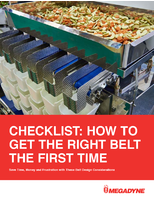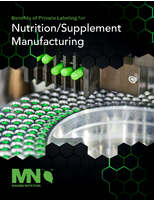ARTEL Pipette Calibration System Improves Quality of qPCR Results

Quality of qPCR Test Results Optimized with ARTEL Pipette Calibration System
Westbrook, ME (February 9, 2009) - Quantitative polymerase chain reaction (qPCR) technology is facilitating significant advances in a number of areas, including molecular diagnostics, personalized medicine, and forensic analysis. To produce quality results, qPCR assays require accurate and precise volume delivery, and pipette calibration is essential. Due to its ability to rapidly measure small liquid volumes at high accuracy and provide NIST-traceable results, the ARTEL PCS® Pipette Calibration System is highly suited for the calibration of pipettes used for qPCR applications. A product of liquid handling quality assurance company Artel (www.artel-usa.com), the PCS is small enough to be used bench-top to help laboratories improve the quality of their qPCR assay results.
"Quantitative PCR testing is prevalent in our laboratory and it is highly volume dependent, so we take pipetting extremely seriously," said Joan Gordon, President, Maine Molecular Quality Control, Inc. (MMQCI), a company that manufactures and sells the first FDA-approved quality control for genetic testing. "We have adopted the ARTEL PCS as our calibration technology of choice because it allows us to know with certainty that our pipettes are not introducing error into our operations, and that is especially important for our qPCR tests."
Offering many benefits such as rapid analysis and sensitive detection, qPCR technology is used for a number of tasks where the consequences of error are severe, including disease and paternity diagnoses, and crime scene analyses. DNA amplification relies on the accurate addition of samples in controlled quantities for proper analysis. Any discrepancy in delivered volumes can alter the concentration and ratio of reagents in the master mix and skew response readings.
"Pipetting inaccuracies even at the sub-microliter level can significantly affect qPCR results due to the small volumes handled. The PCS helps us have greater confidence in the integrity of the data produced with our qPCR assays," said Gordon.
The PCS is able to verify the performance of pipettes when handling low volumes with a high degree of accuracy and precision. This capability is essential for qPCR testing, with total working volumes typically in the 2-200 microliter range. The PCS is based on ratiometric photometry, which measures the absorbance of light by two proprietary dye solutions to verify volume. The use of this photometric method increases the accuracy of the measurements and eliminates sources of error associated with the use of balances. Unlike other pipette calibration technologies, such as gravimetry, the PCS is largely unaffected by environmental conditions or vibration, and there is no need to compensate for sample evaporation.
Easy to use, the PCS can verify the performance of a pipette's accuracy and precision in minutes. This feature allows qPCR-testing laboratories to conduct interim verification checks between regularly scheduled calibrations and before critical assays for stronger confidence in results. With more frequent pipette verification, laboratories can more quickly remove non-functioning pipettes to improve quality and reduce error.
The PCS's portability allows for bench-top calibration at the site where pipettes are used, which is especially important for qPCR testing in sterile laboratories. By not removing pipettes from the sterile environment for calibration, as is required for gravimetric technologies and third-party calibration services, laboratories can avoid lengthy and costly re-sterilization processes.
The PCS produces results traceable to the National Institute of Standards and Technology (NIST), which helps regulated laboratories meet compliance standards and increases the defensibility of their data. The PCS automatically documents all volume verification results for streamlined and rigorous quality control.
"Our pipette calibration system is designed for low-volume, volume-critical applications. We've seen an increasing number of laboratories conducting qPCR testing using the PCS," said Kirby Pilcher, President, Artel.
About ARTEL
Artel is the worldwide leader in liquid handling quality assurance. Artel manufactures the most accurate, precise and easy-to-use systems for ensuring data integrity in any process requiring liquid volume measurement. Artel systems, based on proprietary Ratiometric Photometry, conform to ISO 8655-7 and provide NIST-traceable results to ensure reproducible data and regulatory compliance. In addition, Artel provides liquid handling quality assurance support and consultation services including on-site pipetting technique training and certification for pipette users and laboratory managers, and Liquid Handler Performance Verification services for automated laboratories. Since 1982, Artel technology has been proven in daily use in thousands of laboratories including pharmaceutical, clinical, forensic, public health and environmental. Leading institutions such as Amgen, ARUP, Bristol-Myers Squibb, Celgene, Centers for Disease Control, DuPont, Eli Lilly, FBI, Genentech, Genomic Health, Mayo Clinic, Memorial Sloan-Kettering Cancer Center, Merck, Pfizer, Procter & Gamble and U.S. FDA depend on Artel technology to help them meet their objectives for quality and productivity. For more information, contact Artel at 25 Bradley Drive, Westbrook, ME 04092; Tel: 207-854-0860; Fax: 207-854-0867; Website: www.artel-usa.com.




